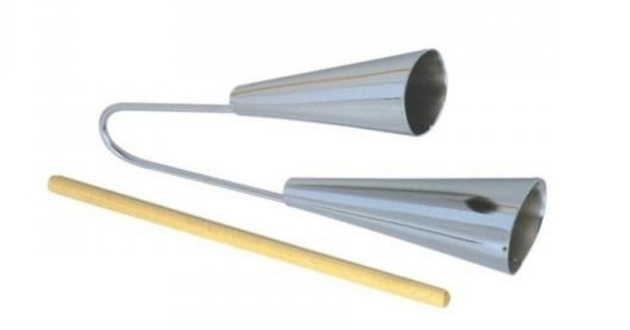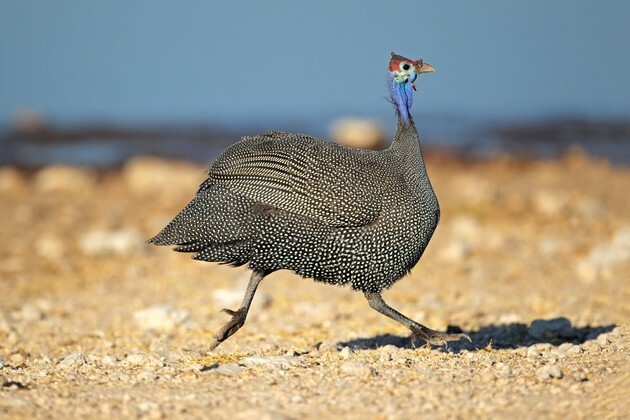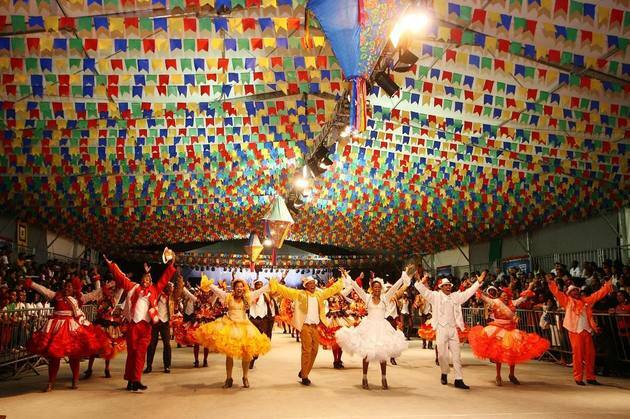The circle games are performed with folk and popular songs, where the members play, dance and sing in circles.
With musicality and the presence of easy-to-memorize rhymes, they are widely used in early childhood education because they stimulate the brain, the attention, motor coordination, agility, the notion of space, in addition to promoting companionship and a sense of collectivity among kids.
However, they can also be used in groups of young people to promote interaction and fun.
Check below 10 wheel games for early childhood education.
1. ciranda, cirandinha
One of the oldest folk songs is the ciranda, cirandinha. In a circle and hand in hand, the children sing and circle. At the end of the song, a classmate is chosen to stand in the middle of the circle. The game ends when all participants are in the center.
Letter:
ciranda, cirandinha
Let's all go around!
let's turn around
Every now and then let's give
the ring you gave me
It was glass and it broke
The love you had for me
It was little and it's over
Therefore, owner (name of a participant)
get inside this wheel
say a very beautiful verse
Say goodbye and go away.
2. Live fish
Another very popular song from the circle games is the Live fish. To play this game, the children are in a circle and holding hands. The members will sing and rotate until the song ends.
Letter:
How can the live fish
live out of cold water
How can the live fish
live out of cold water
how can i live
how can i live
without yours, without yours
without your company
without yours, without yours
without your company
the shepherds of this village
I'm already made fun of
the shepherds of this village
I'm already made fun of
for seeing me like this crying
for seeing me like this crying
without yours, without yours
without your company
without yours, without yours
without your company
3. Canoe Turned
In this wheel game, participants intertwine their hands so that one of them is looking inside the wheel, and the others, who are beside them, look out.
All members sing the song and those who are looking out of the circle, in the chorus, slowly turn around. When everyone is looking at the center of the wheel, the game ends.
Letter:
the canoe capsized
for letting her turn
It was because of Maria
who didn't know how to row
if i were a fish
and knew how to swim
took away maria
from the bottom of the sea
the canoe capsized
for letting her turn
because if i dive
I will get wet
if i were a fish
But since I'm not
I can't swim
And the canoe turned
4. Hot potato
In this game, the children remain seated next to each other in the shape of a wheel. All members sing the song and pass an object. When the music ends, whoever keeps the object, the “hot potato”, leaves the game. Whoever stays until the end wins the match.
Letter:
Potato that goes hot
potato that has passed
who keeps the potato
poor thing got burned!
Note: depending on the location, there is another version of this wheel game, in which the sung phrase is: "hot, hot, hot, hot potato.”
In this version, a person is chosen to stay out of the wheel and on their back. She sings the song while the participants in a circle pass the “hot potato”. When the person standing stops singing, whoever is holding the “hot potato” leaves the game.
5. slaves of job
One of the most popular and traditional wheel games is the “slaves of job”. In it, you can use a pebble or even a ball to play the game. All members must be in a circle and together sing the song.
The object starts in the hand of one of them and goes on to the colleague next to it. However, there are some movements to take, put again, leave still and zigzag the object according to the music.
Understand these movements better with the lyrics below:
Letter:
Slaves of Job (pass by)
They played caxangá (pass by)
Take it off, put it on, let it stay (the member who has the object at that moment, lifts it off the ground, puts it back on, and leaves it there until the sentence is finished)
Warriors with warriors do zig-zig-zah (at the end of the phrase "zigzig-za", you take it to the side without letting go and only at the end do you pass it on to your colleague)
Warriors with fighters zigzigza. (at the end of the sentence "zig-zig-za", it is taken to the side without letting go and only at the end is it passed on to the colleague)
6. run agouti
Also called “Handkerchief ago”, this wheel play is very popular with children. Sitting in a circle with eyes closed, a person is standing singing the song with a handkerchief in hand (which could also be some other object) walking around the circle. At the end of the song, whoever is standing asks “Can I play?”.
At this point, she chooses one of the seated children and leaves the scarf behind. After opening their eyes, whoever was chosen, takes the handkerchief and runs after whoever was singing. If whoever was singing, manages to run without being caught and sit in the place where the other was, he is saved. Otherwise, if whoever was singing is caught, he will start again.
Letter:
run agouti
at the aunt's house
run, vine
at grandma's house
tissue in hand
Fell to the ground
handsome boy
From my heart.
(who has the scarf asks)
- I can play?
(And everyone responds)
- He can!
One two Three!
7. Terezinha de Jesus
For this game, you must form a circle with all the participants, except one of them who will be chosen to be in the center of the circle. Everyone should sing the song together, and when it's finished, another child is chosen by them and starts the song over again.
Letter:
Terezinha de Jesus took a fall
went to the ground
Three gentlemen came
all hat in hand
the first was your father
the second your brother
The third was that
That Tereza held her hand
Terezinha got up
got up there from the ground
And smiling said to the groom
I give you my heart
From the orange I want a segment
I want a piece of the lemon
the most beautiful brunette
I want a kiss and a hug
8. I went to Tororó
In a circle, the children sing the song and little by little they replace the names in the part that says “Maria”: “Oh, Mrs. Maria / Oh, Mariazinha, oh, Mariazinha, join this roda / Or you'll be alone!”.
For example: “Oh Julia / Oh Julia, oh Julia, get on this wheel / Or you'll be alone!”.
The person who is chosen must enter the wheel. When chanting again, the one in the center chooses another name, and so on, until all the names are chosen.
Letter:
I went to Tororó to drink water, I didn't find it
I thought it was beautiful brunette
That in Tororó I left
enjoy my people
that one night is nothing
if not sleep now
will sleep at dawn
Oh, Mrs. Maria
Oh, Maria, oh, Maria, join this roda
Or you will be alone!
I'm not alone
Nor will I stay!
why do i have Pedro
To be my match!
9. lamb, lamb
This wheel play is interesting to stimulate the notion of space and improve motor coordination and attention in children. In a circle, the members sing and make the movements with their heads that appear in the phrases: “look to the sky; look at the ground”.
Also, after each stanza the children should move in the following way.
- After the first stanza, they sit down and continue singing.
- After the second stanza, they get up and continue singing
- After the third stanza, they kneel and sing
In the last stanza, the most agitated of all, there are movements of looking up and down, as well as getting up and kneeling again.
Letter:
Lamb, Lamb, Neirão, Neirão
look to the sky
Look to the ground, to the ground, to the ground,
send the king of Portugal
For us to sit down.
(everyone sits down and sings)
Lamb, Lamb, Neirão, Neirão
look to the sky
Look to the ground, to the ground, to the ground,
send the king of Portugal
For us to get up.
(everyone gets up and sings)
Lamb, Lamb, Neirão, Neirão
look to the sky
Look to the ground, to the ground, to the ground,
send the king of Portugal
For us to kneel down.
(everyone kneels and sings)
Lamb, Lamb, Neirão, Neirão
look to the sky
Look to the ground, to the ground, to the ground,
Send the King, Our Lord
For us to get up.
For everyone to kneel down.
10. Father Francisco
Hand in hand and in a circle, in this game a child is chosen to be Pai Francisco, who stands outside the circle, singing. At the end of the first stanza, she dances and chooses another child to come out of the circle and sing. At the end of the song the new “Pai Francisco” starts to sing.
Letter:
Father Francisco joined the circle
Playing your guitar!
Da…ha…haha! Give!
Come from there your delegate
And Pai Francisco went to prison.
how does he come
all shaken
looks like a doll
Clumsy.
See too:
- Most popular circle songs in Brazil
- Circle songs to play with children
- Popular games that teach and kids love
- Folk Plays: Traditional Toys and Popular Games
- Indigenous games to amuse children
- Very popular June party games
Children's Education Games



